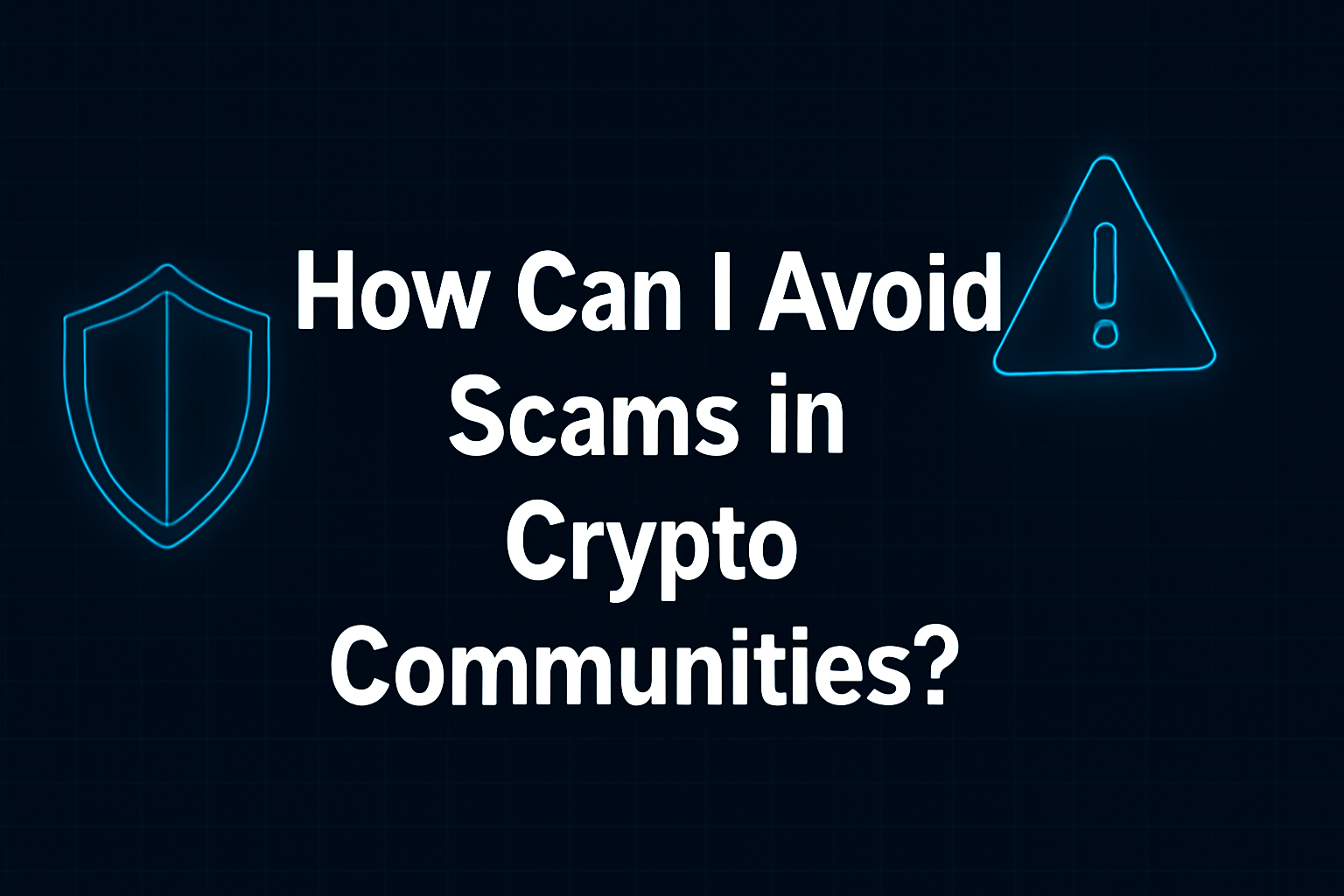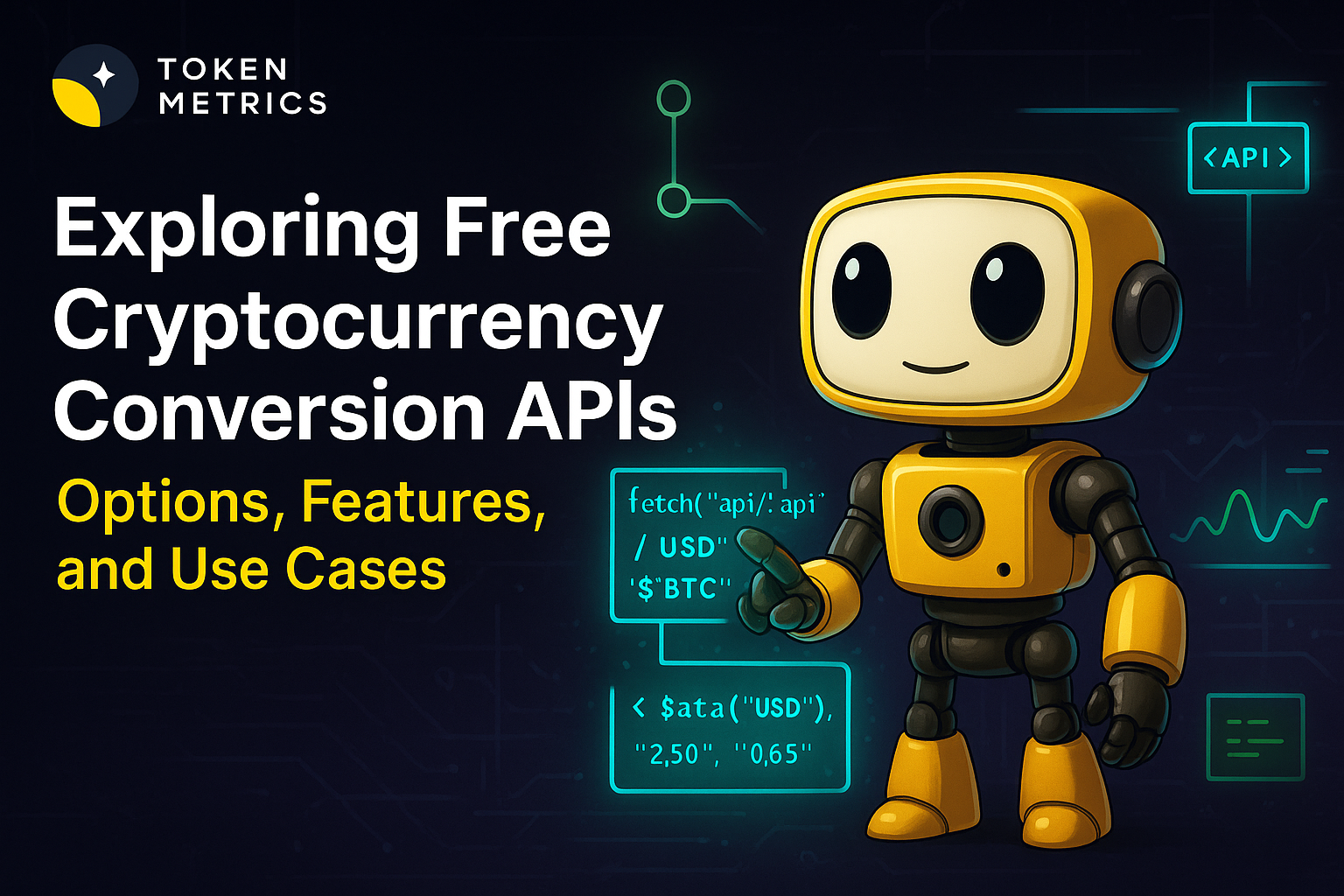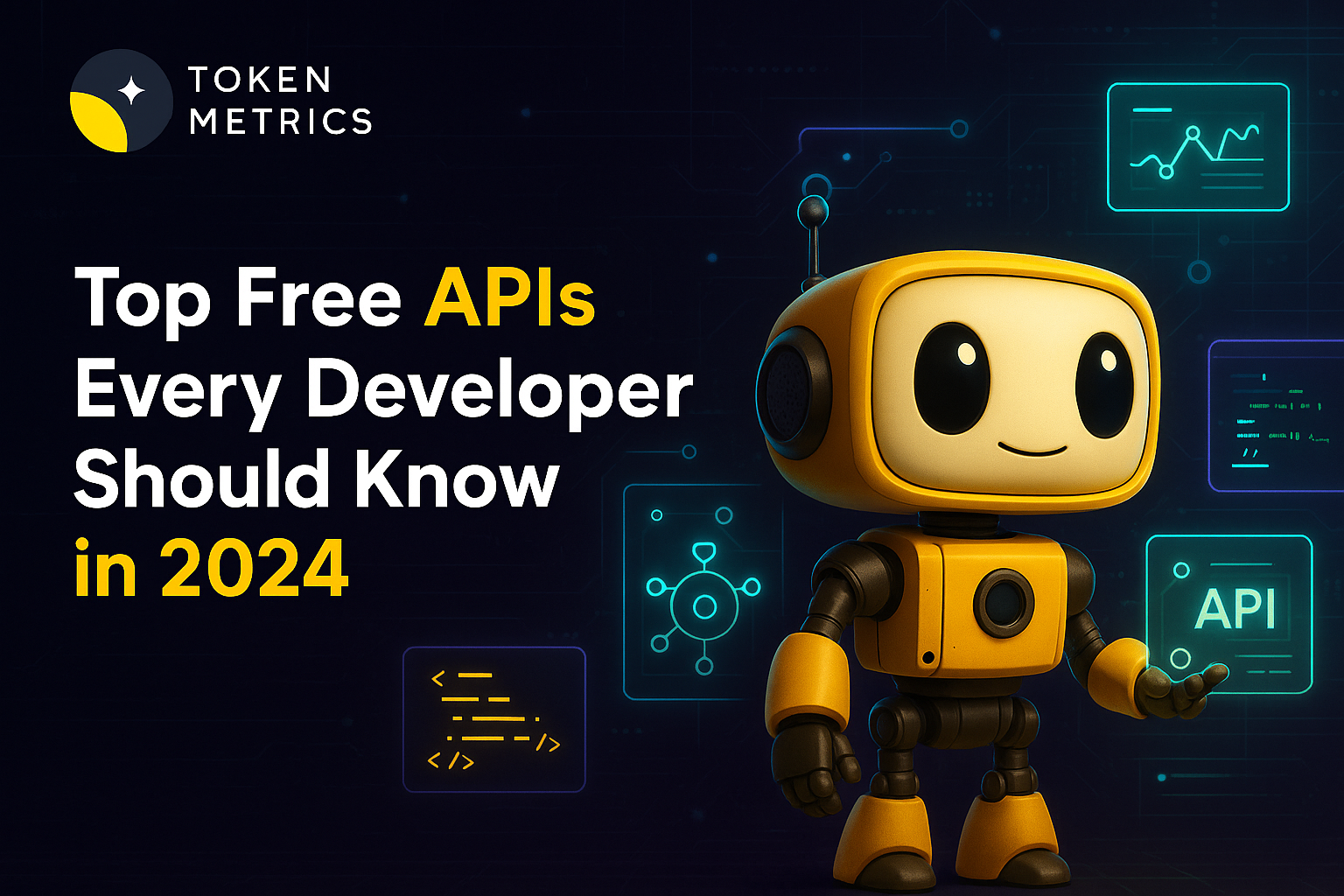How Can I Avoid Scams in Crypto Communities? A 2025 Guide to Staying Safe

The cryptocurrency industry has revolutionized finance and created incredible wealth-building opportunities, but it has also become a breeding ground for sophisticated scams that target unsuspecting investors. As the crypto market matures in 2025, scammers have evolved their tactics, making it more challenging than ever to distinguish legitimate opportunities from fraudulent schemes. Understanding how to protect yourself in crypto communities isn't just recommended—it's essential for survival in this space.
The Scale of the Problem
Cryptocurrency scams have cost investors billions of dollars globally, with losses continuing to mount each year. From fake investment platforms and phishing attacks to rug pulls and Ponzi schemes, the variety and sophistication of crypto scams can be overwhelming. The decentralized and largely unregulated nature of cryptocurrency makes it particularly attractive to criminals, as transactions are irreversible and often difficult to trace.
What makes crypto scams especially insidious is that they frequently target the very communities designed to help investors—social media groups, Discord servers, Telegram channels, and Reddit forums where enthusiasts gather to share information and strategies. Scammers infiltrate these spaces, build trust, and then exploit that trust for financial gain.
Common Types of Crypto Scams in Communities
Understanding the landscape of crypto scams is your first line of defense. Phishing scams remain among the most prevalent, with criminals creating fake websites that mimic legitimate exchanges or wallet services to steal login credentials and private keys. These scams often circulate through community channels disguised as official announcements or helpful resources.
Pump-and-dump schemes proliferate in Telegram groups and Discord servers where coordinated groups artificially inflate the price of low-cap cryptocurrencies before selling their holdings, leaving other investors with worthless tokens. These schemes often promise "guaranteed returns" or insider information about the "next 100x coin."
Impersonation scams have become increasingly sophisticated, with fraudsters creating fake profiles that mimic influencers, project founders, or platform administrators. They reach out to community members via direct messages offering investment opportunities, giveaways, or technical support—all designed to steal funds or private information.
Fake ICOs and token launches represent another major threat, with scammers creating professional-looking websites and marketing materials for non-existent projects. They collect investor funds and then disappear completely—a practice known as a "rug pull."
Giveaway scams frequently appear across social media platforms, claiming that celebrities or major crypto figures are giving away cryptocurrency. The catch? You need to send crypto first to "verify your address" or "unlock your reward." These are always scams—legitimate giveaways never require upfront payment.
Red Flags Every Crypto Investor Should Recognize
Developing a keen eye for warning signs can save you from devastating losses. Any investment opportunity promising guaranteed returns or extraordinarily high yields with zero risk should immediately raise suspicions. In legitimate financial markets, higher returns always come with higher risk—there are no exceptions.
Unsolicited direct messages offering investment advice or opportunities are almost always scams. Legitimate projects and platforms don't cold-message potential investors through social media. Similarly, excessive pressure to invest immediately or claims about "limited-time opportunities" are classic manipulation tactics designed to prevent you from conducting proper due diligence.
Poor grammar, spelling errors, and unprofessional communication often indicate scams, though sophisticated fraudsters have improved in this area. More reliable indicators include anonymous teams, lack of verifiable credentials, and absence of working products or prototypes. Always be wary of projects that can't clearly explain their technology, use case, or business model.
Requests for private keys, seed phrases, or wallet passwords are absolute deal-breakers. No legitimate service ever needs this information. Your private keys are like the keys to your house—you never give them to anyone, regardless of the reason they provide.
Essential Security Practices for Crypto Communities
Protecting yourself requires implementing multiple layers of security. Start by enabling two-factor authentication (2FA) on all your crypto accounts using authenticator apps rather than SMS, which can be vulnerable to SIM-swapping attacks. Use hardware wallets for storing significant amounts of cryptocurrency, keeping the majority of your holdings offline and away from potential hackers.
Create unique, complex passwords for each crypto-related account using a reputable password manager. Never reuse passwords across platforms, as a breach on one site could compromise all your accounts. Be especially cautious about which browser extensions you install, as malicious extensions can steal wallet information and transaction data.
Before joining any crypto community or platform, verify its legitimacy through multiple independent sources. Check official websites, read reviews from established crypto news sites, and look for red flags in community discussions. Platforms like Token Metrics—a leading crypto trading and analytics platform—provide comprehensive project ratings and analysis that help investors separate legitimate opportunities from potential scams through data-driven research and AI-powered risk assessment.
Verifying Projects and Opportunities
Due diligence is your most powerful weapon against scams. When evaluating any cryptocurrency project, start by researching the team behind it. Legitimate projects have doxxed team members with verifiable LinkedIn profiles, previous work experience, and professional reputations. Be extremely cautious of anonymous teams, especially for projects seeking significant investment.
Examine the project's whitepaper carefully. While technical complexity doesn't guarantee legitimacy, vague or plagiarized whitepapers are major red flags. Search for phrases from the whitepaper online to check for plagiarism. Legitimate projects invest significant resources into creating original, detailed technical documentation.
Check the project's smart contract code if it's been deployed. Many scams include malicious code that prevents investors from selling tokens or allows developers to drain liquidity pools. Use blockchain explorers to verify contract addresses and examine transaction histories. Look for third-party smart contract audits from reputable firms—though remember that even audited projects can be scams if audits are faked.
Token Metrics excels in this area by providing comprehensive fundamental analysis, on-chain metrics, and risk assessments that help investors evaluate projects objectively. The platform's AI-driven approach analyzes thousands of data points to identify potential red flags and assess project viability, making it an invaluable tool for avoiding scams while identifying genuine opportunities.
Community-Specific Safety Guidelines
Different crypto communities require different approaches to safety. In Discord and Telegram groups, be aware that scammers often create bot accounts or compromise existing accounts to spread malicious links. Never click on links from users you don't know, and always verify URLs carefully before entering any credentials.
On Twitter and other social media platforms, verify accounts by checking for official verification badges and cross-referencing with information from official project websites. Be aware that scammers create look-alike accounts with similar handles and profile pictures to impersonate legitimate figures.
In Reddit communities, check user history and karma scores before trusting financial advice. Scammers often use new accounts or purchased accounts with minimal activity. Participate in established communities like r/CryptoCurrency where moderation teams actively combat scams and misinformation.
When participating in crypto communities, maintain operational security by never discussing specific investment amounts, wallet addresses, or holdings publicly. This information makes you a target for sophisticated social engineering attacks.
Using Technology and Tools to Protect Yourself
Leverage technology to enhance your security posture. Use VPNs when accessing crypto accounts from public networks, install reputable antivirus and anti-malware software, and regularly update all your devices and applications to patch security vulnerabilities.
Blockchain analytics tools can help you verify transaction histories and identify suspicious activity. Platforms like Token Metrics integrate advanced analytics with trading signals and portfolio management tools, providing institutional-grade security insights previously available only to professional investors. The platform's comprehensive approach combines technical analysis, fundamental research, and AI-powered predictions to help users make informed decisions while avoiding fraudulent projects.
Set up alerts for unusual account activity and regularly monitor your exchange accounts and wallets for unauthorized transactions. The faster you detect potential compromises, the better your chances of minimizing damage.
What to Do If You Encounter a Scam
If you identify a potential scam, report it immediately to the platform where you encountered it and warn other community members. Most crypto platforms have dedicated channels for reporting suspicious activity. Document everything, including screenshots, wallet addresses, and communication records—this information may be valuable for investigations or recovery efforts.
If you've been scammed, act quickly. Contact your exchange immediately if funds are still in transit, report the incident to relevant authorities, and share your experience in community forums to prevent others from falling victim. While recovery is often difficult, rapid action sometimes enables partial fund recovery.
Building Long-Term Security Habits
Avoiding scams in crypto communities requires ongoing vigilance rather than one-time actions. Stay educated about emerging scam tactics by following reputable crypto security experts and news sources. Regularly review and update your security practices as new threats emerge.
Maintain a healthy skepticism about opportunities that seem too good to be true—because they usually are. Trust but verify should be your mantra in crypto communities. Before investing in any project, regardless of how enthusiastic the community appears, conduct thorough independent research.
Consider using professional-grade analytics and research platforms like Token Metrics to supplement your due diligence. The platform's comprehensive ratings, AI-driven insights, and risk assessment tools provide objective analysis that helps cut through hype and identify legitimate opportunities while flagging potential scams.
Conclusion
Navigating crypto communities safely in 2025 requires awareness, vigilance, and the right tools. While scams continue to evolve in sophistication, informed investors who implement robust security practices, conduct thorough due diligence, and leverage professional analytics platforms significantly reduce their risk exposure.
Remember that in cryptocurrency, you are your own bank—which means you're also responsible for your own security. No legitimate investment requires you to share private keys, send funds upfront, or make rushed decisions under pressure. By combining community wisdom with professional tools like Token Metrics, maintaining healthy skepticism, and following the security practices outlined in this guide, you can participate confidently in crypto communities while protecting your investments from fraudulent schemes.
The crypto industry offers tremendous opportunities for those who approach it intelligently and cautiously. Stay informed, stay skeptical, and always prioritize security over potential gains. Your future self will thank you for the diligence you exercise today.
Create Your Free Token Metrics Account

.png)




%201.svg)
%201.svg)


%201.svg)










.svg)




.png)